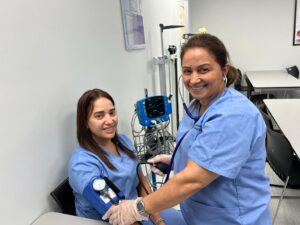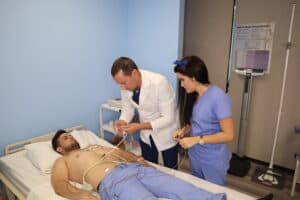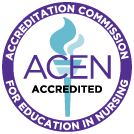A medical assistant is someone who performs clinical and administrative procedures that assist doctors and nurses with patient care in a health care setting. To become a medical assistant, you need to know basic medical procedures as well as medical software and administrative processes. Gaining this knowledge will require you to attend a medical assistant training program or medical assistant school.
Learn more about the topics of study and the courses you will take during medical assistant training below.
What Classes Will You Take During a Medical Assistant Training Program?
You will take a variety of courses during a medical assistant program. Some of these courses cover medical protocol and procedures, and others look at administrative tasks and processes. This program gives you the knowledge and experience you need for an entry-level medical assistant position. Here are some of the courses you can take during a medical assistant program.
- Basic Anatomy and Physiology – Anatomy is the study of all the parts and structures that make up the human body. Physiology describes why and how the body systems work. Both anatomy and physiology are essential to an understanding of medicine and medical treatment. When you go to medical assistant school, you will take basic anatomy and physiology courses to help you better understand the systems in the human body.
- Pharmacology – Another course you can expect to take during a medical assistant training program is pharmacology. Pharmacology is all about medication. This course will teach you about different medications and how they affect the human body. You will learn about common drugs and their uses as well as the side effects they may cause. Additionally, during this class, you will study different ways to administer medications which will be very important for your future work in the health care field.
- Patient Preparation and Clinical Procedures – As a medical assistant, you will not perform any significant procedures or surgeries, but you will carry out basic patient care. To prepare you for these interactions, medical assistant school courses will discuss patient care and clinical procedures. In this course, you will learn how to take a patient’s vitals as well as how to perform fundamental procedures like applying bandages.
- Medical Insurance and Medical Office Procedures – Through a medical assistant program, you will also take courses that cover the administrative tasks you will perform as a medical assistant. For example, when you work as a medical assistant, you will have to deal with patient insurance, medical software, and patient records. You will take classes that cover different medical software and office procedures so that you are prepared when it comes to working a job in the future.
- Externship or Clinical Hours – Another key part of your medical assistant education includes an externship or clinical hours. This is not a class you take, but instead real-life experience working in a health care facility. This externship or clinical takes place toward the end of your medical assistant schooling and gives you a chance to use what you have learned under the supervision of a medical professional. This allows you to enter the workforce with some real experience.
These are not all of the courses you will take during your medical assistant program, but the above courses can give you a good idea about what to expect. Contact us if you would like to learn more about FVI School of Nursing and Technology’s Florida medical assistant programs that we offer.
What Employment Opportunities Do You Have After Graduation?
Schooling is all about preparing you for a great career, and attending a medical assistant school can set you up for some great job opportunities. You could work at a hospital, clinic, or doctor’s office as a medical assistant. When you work as a medical assistant, you can expect to perform job duties such as scheduling patient appointments, measuring patient vital signs, updating medical records, preparing blood samples, and more.
It is also important to note that employment for medical assistants is expected to grow 29 percent from 2016 to 2026; per the Bureau of Labor Statistics. That projected job growth is much faster than many other occupations, which makes this an excellent career option. There will be lots of opportunities to work as a medical assistant in the coming years.
Contact us to learn more about attending medical assistant school at the FVI School of Nursing and Technology. We can help you set yourself up for a great career in medicine.
e offer our medical assisting program at both campuses in Broward county, choose from our medical assistant school in Miramar or our medical assistant school in Miami.
For more information about graduation rates, the median debt of students who completed the program, and other important information, please visit our website: https://fvi.edu/consumer-information/.








